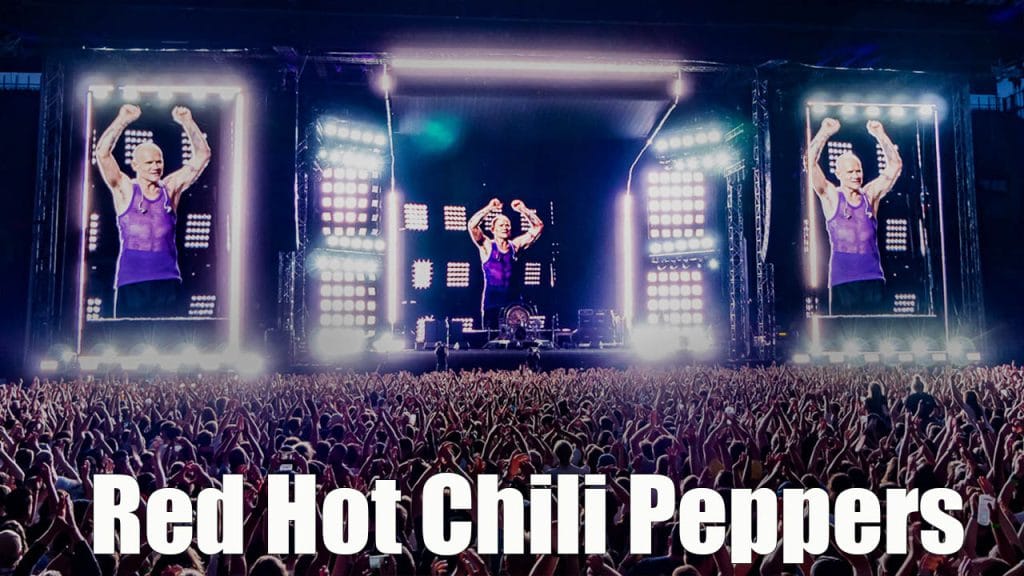Are you wondering, “Where is the 2026 FIFA World Cup going to be held?” Look no further, as we delve into the exciting details of the host cities for this monumental event. The 2026 FIFA World Cup promises to be a global spectacle, bringing together nations and football enthusiasts from around the world. With an eagerly anticipated lineup of host cities, each offering its unique cultural charm and sporting fervor, the stage is set for an unforgettable tournament. Join us on a virtual journey as we unveil the locations that will play a pivotal role in shaping the 2026 FIFA World Cup landscape.
Introduction: Exploring the Significance of the 2026 FIFA World Cup
As we eagerly anticipate the arrival of the 2026 FIFA World Cup, the question on everyone’s mind is where is the 2026 FIFA World Cup. This globally renowned event will not only showcase the pinnacle of football talent but also bring together nations from around the world in a celebration of sportsmanship and unity.
The Impact of Hosting FIFA World Cup
Hosting the FIFA World Cup is a monumental task that brings with it both challenges and opportunities. Countries selected as host cities must invest in infrastructure, accommodation, and security to ensure a successful tournament that leaves a lasting legacy.
Additionally, hosting the World Cup provides a unique chance for the host nation to showcase its culture, hospitality, and capabilities on a global stage, leaving a lasting impression on visitors and viewers worldwide.
Legacy of the World Cup
The legacy of hosting the FIFA World Cup extends far beyond the tournament itself. Host cities often experience a boost in tourism, infrastructure development, and global recognition, paving the way for future growth and prosperity.
Furthermore, the World Cup serves as a catalyst for social cohesion, bringing together people from diverse backgrounds to celebrate their shared love for the beautiful game, fostering a sense of unity and inclusivity.
History of the FIFA World Cup: Tracing its Evolution
The FIFA World Cup, one of the most prestigious international football tournaments, has a rich history dating back to its inception in 1930. Initially held in Uruguay, the tournament has evolved over the years to become a global phenomenon that captures the hearts of millions of fans worldwide.
The Beginnings
The first FIFA World Cup in 1930 featured just 13 teams, with Uruguay emerging as the inaugural champions. The tournament aimed to bring together nations in the spirit of sportsmanship and unity.
Uruguay’s victory set the stage for future editions of the World Cup, showcasing the passion and skill that would define the tournament for years to come.
Expansion and Growth
Over the decades, the FIFA World Cup expanded both in terms of the number of participating teams and global viewership. New powerhouse nations emerged, adding to the competitiveness and drama of the tournament.
- Bold moments: Iconic moments such as Brazil’s dominance in the 1950s, the emergence of Pele, and the “Hand of God” goal by Maradona in 1986 have left indelible marks on World Cup history.
- Global Reach: With each edition, the World Cup reached a larger audience, uniting people from diverse cultures and backgrounds through the universal language of football.
Selection Process: How Host Cities are Chosen
Host cities for major events like the FIFA World Cup are carefully selected through a rigorous process that takes into account various factors. The selection process for the 2026 FIFA World Cup involved extensive evaluations to ensure the chosen cities could meet the requirements of hosting such a prestigious event.
Evaluation Criteria
The evaluation criteria for selecting host cities include stadium infrastructure, accommodation options, transportation network, security measures, and overall readiness to host a global event of this scale.
Each city’s ability to provide a world-class experience for players, officials, and fans is also a crucial factor in the selection process.
Decision-making Process
After a thorough evaluation of potential host cities, a panel of experts and officials from the organizing committee review the findings and make informed decisions based on the data collected.
The final selection is made to ensure that the chosen cities can collectively deliver a successful tournament that meets the expectations of FIFA and the millions of fans around the world.
Host Cities Revealed: Unveiling the Locations for the 2026 Event
The excitement is building as the world eagerly anticipates the 2026 FIFA World Cup. The host cities for this prestigious event have been officially unveiled, creating a buzz among football fans worldwide. With where is 2026 FIFA World Cup on everyone’s minds, the locations selected are set to showcase the best of what each city has to offer.
Iconic Host Cities
The 2026 FIFA World Cup will be hosted across multiple cities, each bringing its unique charm to the tournament. From the vibrant streets of New York City to the historic landmarks of Rome, football aficionados can look forward to experiencing diverse cultures and breathtaking venues.
State-of-the-Art Stadiums
With state-of-the-art stadiums like the MetLife Stadium in New Jersey and the Wembley Stadium in London set to host matches, fans can expect an unforgettable viewing experience. These modern arenas are equipped with top-notch facilities to ensure the utmost convenience and enjoyment for spectators.
- MetLife Stadium
- Wembley Stadium
- And more…
Infrastructure & Preparation: Getting Ready for the World Cup
As the host cities gear up for the 2026 FIFA World Cup, significant infrastructure improvements and meticulous planning are underway. Host countries are focused on ensuring that stadiums, transportation networks, accommodations, and security measures meet the highest standards to welcome teams, fans, and officials from around the globe.
Upgrading Stadiums
Host cities are renovating existing stadiums and constructing new state-of-the-art facilities to meet FIFA requirements. The upgrades aim to enhance the spectator experience and provide top-notch venues for the matches.
Improving Transportation Networks
Cities are investing in their transportation infrastructure to facilitate the movement of fans and teams during the World Cup. Improved road networks, public transportation systems, and dedicated transport services will ensure seamless travel.
Enhancing Accommodation Options
Host cities are expanding their range of lodging options, including hotels, hostels, and alternative accommodations to cater to the influx of visitors expected during the tournament. Booking platforms are being optimized to streamline reservations.
Ensuring Security Measures
Strong security protocols are being put in place to guarantee the safety of all participants and spectators. Coordination between law enforcement agencies, technology implementation for monitoring, and crowd management strategies are part of the comprehensive security plan.
Cultural Impact: How the World Cup Transforms Host Cities
The FIFA World Cup is a global event that not only showcases top-tier football but also leaves a lasting cultural impact on the host cities. When a city is chosen to host this prestigious tournament, it undergoes a significant transformation that affects various aspects of its culture and infrastructure.
Economic Boost
Hosting the World Cup provides a massive economic boost to the host cities. Investments in transportation, accommodation, and tourism infrastructure lead to job creation and increased revenue for local businesses.
This economic stimulus often extends beyond the tournament itself, with long-term benefits for the city’s economy lasting for years after the event.
Cultural Exchange
The influx of international visitors during the World Cup fosters a cultural exchange between the host city’s residents and fans from around the world. This exposure to different cultures enhances the city’s diversity and promotes global understanding.
- Through cultural events, art exhibitions, and food festivals, host cities showcase their unique identity to a global audience.
Frequently Asked Questions
- Which country will host the 2026 FIFA World Cup?
- The 2026 FIFA World Cup will be co-hosted by Canada, Mexico, and the United States.
- How many host cities will be there for the 2026 FIFA World Cup?
- There will be a total of 16 host cities for the 2026 FIFA World Cup, with 10 in the United States and 3 each in Canada and Mexico.
- Can you name some of the host cities for the 2026 FIFA World Cup?
- Some of the host cities for the 2026 FIFA World Cup include Los Angeles, New York City, Mexico City, Toronto, and more. The full list of host cities will be announced as the event approaches.
- When will the host cities for the 2026 FIFA World Cup be officially unveiled?
- The official unveiling of the host cities for the 2026 FIFA World Cup is expected to happen closer to the tournament date, as the planning and preparations progress.
- Will this be the first time the FIFA World Cup is hosted by three countries?
- Yes, the 2026 FIFA World Cup will mark the first time in the tournament’s history that it will be co-hosted by three countries.
In Conclusion: Exciting Times Ahead for FIFA World Cup 2026
As we come to the end of our journey exploring the host cities for the 2026 FIFA World Cup, one thing is clear – the anticipation and excitement for this global event are palpable. With games spread across the United States, Canada, and Mexico, fans around the world will have the opportunity to witness the magic of the beautiful game in some truly iconic locations. From the historic streets of Montreal to the vibrant energy of Mexico City, the 2026 FIFA World Cup promises to be a spectacle like no other.
So, mark your calendars and start planning your trips because the 2026 FIFA World Cup is set to showcase the best of soccer and the rich cultures of North America. It’s a celebration of unity, diversity, and the universal love for the game that brings us all together.




